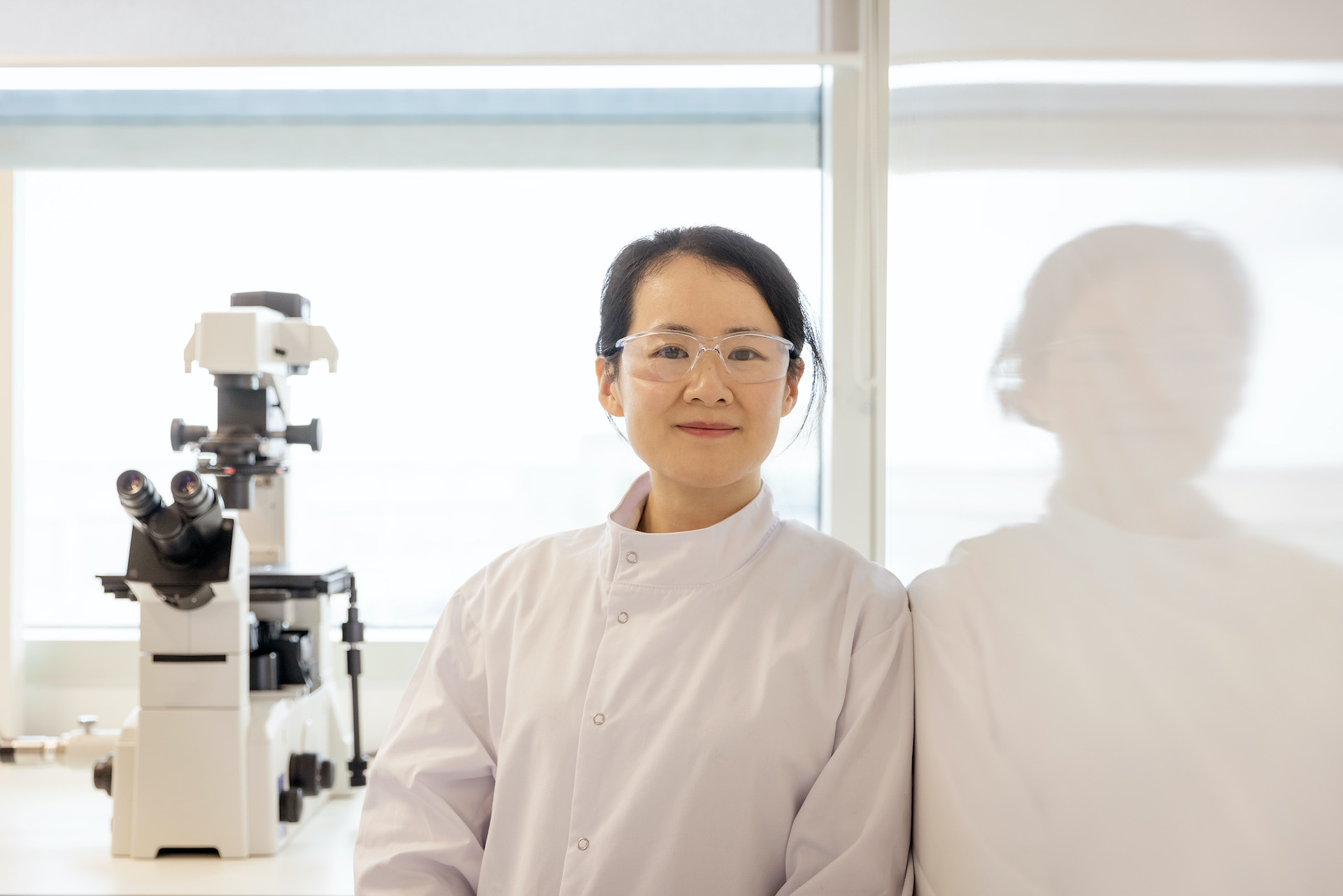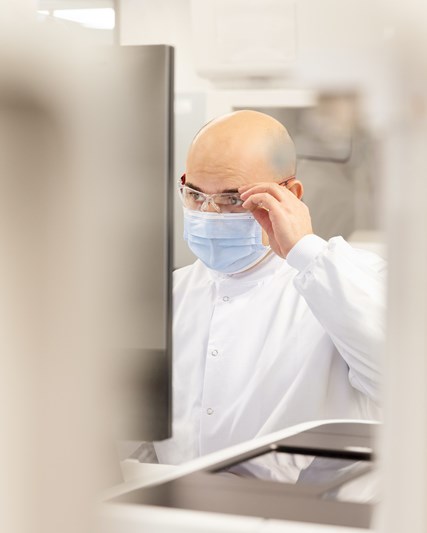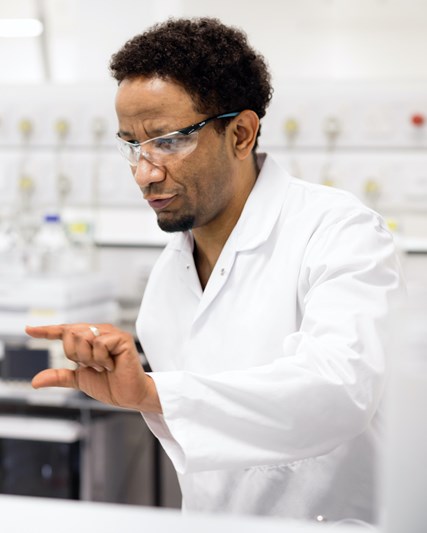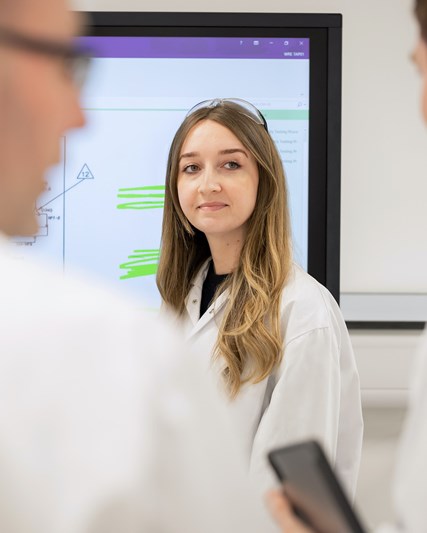Over the past few decades we’ve seen a tremendous evolution in multiple myeloma treatment. Thirty years ago, the five-year survival rate for this blood cancer was only 29%. Since then, our understanding of the disease has greatly improved. We have become better at identifying novel targets for drug discovery – and with many more treatment options, the survival rate has nearly doubled.
However, even with these significant developments, multiple myeloma remains one of the most challenging cancers. It is treatable, but not yet curable. Patients have many unmet needs, especially as it moves towards becoming a ‘chronic cancer.’ We must address the ongoing concerns of these patients who are living longer with multiple myeloma, as well as their loved ones.
Here, two GSK experts discuss the latest advances in multiple myeloma research, treatment and community initiatives. Ali Cimen, MD, is our VP, Head of Haematology, Breast and Gynaecological Oncology; Antonio Palumbo, MD, is a Global Medical Expert in Haematology. Both have experience as practicing physicians and reveal how GSK is spearheading innovation in this area.
Q. What are some of the key advances we’re seeing in multiple myeloma research?
Ali Cimen:Emerging treatments, such as anti-BCMA therapies, are a significant advance for patients. Patients who have relapsed or become refractory to standard therapies like immunomodulatory drugs, proteasome inhibitors and anti-CD38 monoclonal antibodies have very limited treatment options. Re-treating patients with drugs from the same class is often unsuccessful.
By developing therapies that work differently, we’re providing patients with novel ways to treat this cancer – and potentially improve their outcomes. But we can’t just stop research once these therapies are approved. We must continue to study these therapies to better understand how they can and should be used to treat patients with multiple myeloma. For instance, we need to investigate which are the most promising potential treatment sequences, and how different therapies can best be combined with other multiple myeloma treatments. Some of this research is now coming to fruition, and it’s very exciting to learn how we can optimise the use of these new therapies.
Antonio Palumbo: We’re also very excited about the potential for MRD-guided therapy. ‘MRD’ stands for minimal residual disease, which means a small number of cancer cells are left in the body after treatment. By measuring a patient’s MRD status, we hope to predict how they’re responding to a particular treatment. That helps us make better-informed treatment choices that could potentially improve outcomes. For example, if we notice an increase in a patient’s MRD status, we may be able to make earlier treatment decisions – such as intensifying their therapy or trying a different therapy.
Q. What is GSK doing to support the multiple myeloma community?
Antonio: We’re proud of our robust R&D programme in multiple myeloma, which has the potential to bring next-generation therapies to patients. In fact, the opportunity to be part of it is one of the reasons I joined GSK after more than 25 years as a physician and professor of haematology.
Our programme explores various approaches to therapeutic dosing, the value of monotherapy, and how combinations of current therapies and novel treatments with approved therapies can be used. We’re also conducting various real-world evidence studies to help us better understand unmet patient needs, and how we can best address them.
GSK is leading the way in researching new therapeutic approaches, but we also value the expertise and perspectives from others. We frequently collaborate with academia and industry to further our research. Together, we can get ahead of multiple myeloma to extend survival rates and improve quality of life for patients around the world.
Ali: Our commitment to the multiple myeloma community goes beyond developing new therapies. We are also deeply engaged in advocacy efforts and work with a range of organizations that help support both the myeloma and broader cancer community. For example, we recently worked with the Multiple Myeloma Research Foundation (MMRF) as one of the core collaborators on its MMRF CureCloud research initiative. The first, largest and most comprehensive data hub in multiple myeloma, CureCloud is designed to speed up delivery of precision-based treatment to every patient. This deep and robust data set will be an important resource for our future myeloma research projects, so we can ultimately deliver better treatment options for patients.
In addition, we’re working with the International Myeloma Foundation (IMF) on various initiatives, including i2TEAMM (International Independent Team for Endpoint Approval of Multiple Myeloma). This important effort brings together leading researchers and industry partners to validate the research and use of surrogate endpoints such as MRD in clinical trials evaluating potential treatment options. The ultimate goal of i2TEAMM is to bring these therapies to patients sooner.
We also recently launched a global, multi-year programme called Target the Future. This programme is identifying the key challenges faced by the multiple myeloma community and facilitating the development of tangible solutions for those living with the condition – as well as educating stakeholders on trends and treatment options. Stay tuned for more coming out of this exciting initiative.
Q. How has curiosity inspired your multiple myeloma research?
Ali: Curiosity is at the core of everything we do at GSK. To improve patient outcomes, we must continue asking the questions that reveal unmet patient needs – and ultimately help us find solutions.
Antonio: After all my years in medicine, I’m still excited by research. The opportunity to see and test the unknown is a gift which brings me great satisfaction and fuels all my work at GSK. It’s an honour to be part of this journey.
Hear how Ali and Antonio are #InspiredByCuriosity
Hear how Ali and Antonio are #InspiredByCuriosity
Inspired by Curiosity: Ali Cimen
Hear how Ali Cimen, MD, VP, Head of Haematology, Breast and Gynaecological Oncology at GSK, is #InspiredByCuriosity
Inspired by Curiosity: Antonio Palumbo
Hear how Antonio Palumbo, MD, Global Medical Expert in Haematology at GSK, is #InspiredByCuriosity




